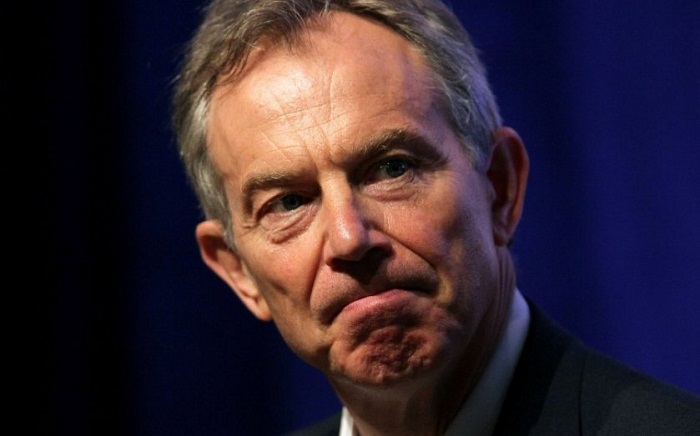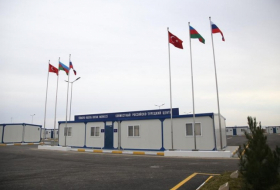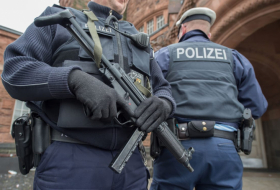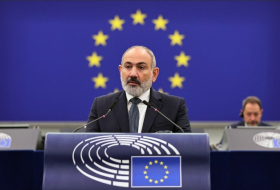He also appeared sceptical of a “soft Brexit”, which would mean Britain remaining in the single market and the customs union, adding the political difficulties are evident. “It would lead in short order to a scratch of the British collective head and feeling of ‘oh well, in that case, what’s the point of leaving?”.
In an eight-page article on Brexit and the centre in European politics, Mr Blair wrote: “Rational consideration of the options would sensibly include the option of negotiating for Britain to stay within a Europe itself prepared to reform and meet us halfway.”
He continued, suggesting reform is now on Europe’s agenda and EU leaders are willing “to consider changes to accommodate Britain” including around the freedom of movement – one of the most contentious issues of the referendum last year.
While EU leaders have consistently said on record that there will be no compromise on free movement – one of the bloc’s founding principles – Nick Clegg, the former Deputy Prime Minister, has also relayed similar discussions with EU officials willing to give ground to Britain.
Describing Britain’s exit from the European Union as the “biggest political decision since the Second World War”, he added: “Given what is at stake, and what, daily we are discovering about the costs of Brexit, how can it be right deliberately to take off the table the option of compromise between Britain and Europe so that Britain stays within a reformed Europe?
“It is not too late for the country to grip its own destiny, change the terms of the Brexit debate and turn its attention to the true challenges the nation faces.”
Ending his silence since the general election campaign last month, the former Labour Prime Minister also said the result was “remarkable” and one that he did not foresee. Shortly after Ms May had called the snap election, Mr Blair, a vocal critic of his party’s left-wing leader, said the Conservatives were on course to win the election if the polls were correct.
“I pay tribute to Jeremy Corbyn’s temperament in the campaign, to the campaign’s mobilisation of younger voters and to the enthusiasm it generated,” Mr Blair admitted.
But in the article he also warned Mr Corbyn’s supporters not to “exaggerate” the victory and for critics not to “understate” his gains. “He tapped into something real and powerful, as Bernie Sanders has in the USA and left groups have done all over Europe,” he said.
While he added unexpected victories in constituencies such as Kensington and Chelsea and Canterbury – a seat never previously held by Labour since its creation in 1918 – were “amazing”, Mr Blair warned that losses in Middlesborough and Stoke “were equally alarming”.
He continued: “The Labour party should be cautious in thinking ‘one more heave’ will deliver victory next time. The Corbyn campaign was a positive factor in the election result; but the determine factor was the Tory campaign.
“The Corbyn enthusiasm, especially amongst the young, is real, but I would hesitate before saying that all those voted to make him Prime Minister; or that they supported the body of the programme rather than its tone.”
Mr Blair, who was Prime Minister between 1997 and 2007, also urged Mr Corbyn to “champion a position on Europe radically distinct from the Tories” and reach out to members of the Parliamentary Labour Party (PLP) with experience in government.
He wrote: “If Labour continues to be for leaving the single market, and the signs are that it will, then we are essentially for the same policy as the Government.
“This will become apparent to those who voted Remain. But more than that, it puts us in the same damaging position for the economy as the Tories; and in circumstances where we are also trying to end austerity through spending programmes which, to be clear, are larger than any Labour Party has ever proposed.”
In the article Mr Blair also alluded to polling conducted by the Tony Blair Institute – a policy forum set up last December – adding that it showed a majority, in Britain, France, and Germany, “still identify most with the centre of politics”.
According the poll, of those who responded 34 per cent self-identified as “centre” in Britain, while 16 per cent said “centre-left” and 25 per cent “centre-right”. A further 6 per cent self-identified as “left” and 9 per cent as “right”.
But when broken down by age, around 47 per cent of respondents between 18 and 24 wanted to see the next government shift to the left.
While he said he was not advocating the creation of a new party, he added that millions are “politically homeless” in the UK and support for centre-ground remains strong.
“The challenge for the centre is to be the place of changing the status quo not managing it,” he said. “If it does it still beats everything else.
“What the progressive centre lacks is a radical policy agenda. That is the most immediate task and the one to which my new institute is devoted.”
More about: #Brexit #TonyBlair
















































